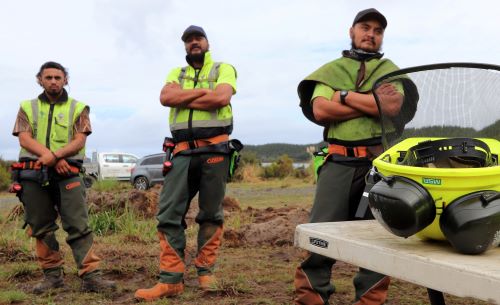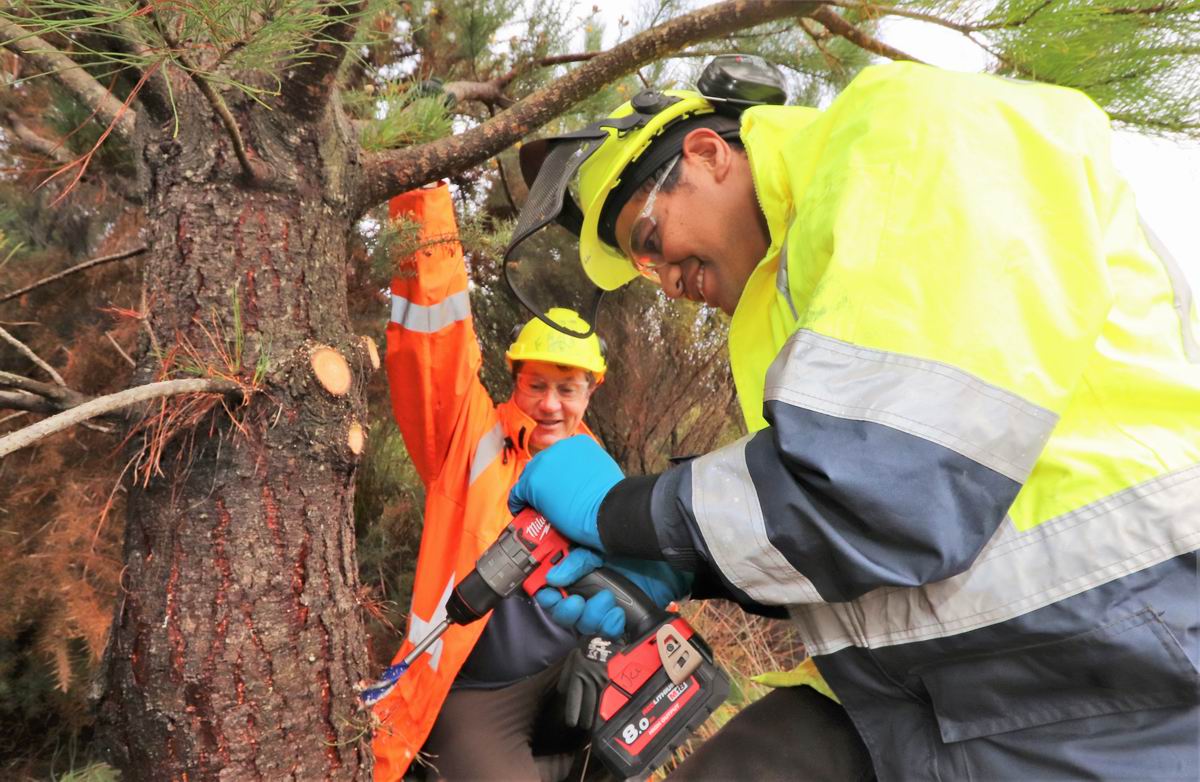$1M north funding ‘win-win’ for workers, environment; NRC
11 May 2020, 7:34 AM
A win for both local forestry workers impacted by the Covid-19 pandemic and the region’s environment is how the Northland Regional Council describes a newly-announced $1 million of government funding for Northland to tackle wilding pines.
Biosecurity Minister Damien O’Connor yesterday (Sunday, 10 May) announced a total of $3M funding for wilding pine projects; $1M for projects in Northland (one in the Kaitaia area and the other near Dargaville) and $2M for three projects in Canterbury.
The funding recognises them as among regions hit hard by the economic fallout from the pandemic and collectively the five weather-dependent projects are expected to provide jobs for more than 70 people, for around three months.
Northland Regional Council (NRC) chair Penny Smart is also the council’s Kaipara constituency representative and says once the project reaches its full potential in the area it will have covered the cost of about 1000 days’ fulltime work for a core team of more than a dozen people.
 Highly-skilled forestry workers, including this trio from Northland’s Johnson Contractors Limited (pictured during training in the Kaipara area in March), will tackle unwanted wilding pines as part of $1 million newly-announced central government funding for the North.
Highly-skilled forestry workers, including this trio from Northland’s Johnson Contractors Limited (pictured during training in the Kaipara area in March), will tackle unwanted wilding pines as part of $1 million newly-announced central government funding for the North.
“The first stage will see the removal of wilding pines and other problem trees from land near Dargaville and should be officially underway within a matter of weeks. The team also has other wilding pine projects planned for in the area in the event wet weather prevents access to the river margins.”
Chair Smart says the initial work will help reduce flood risks and mitigate streambank erosion and the project will then scale up to other areas in the wider Dargaville area, including controlling wilding pines along the margins of rare dune lakes, valuable wetlands and roadsides.
“The mix of skills needed will all be local people, putting much-needed money back into our local economy.”
Meanwhile, at the other end of the regional council’s jurisdiction, its Te Hiku representative Colin (Toss) Kitchen is hopeful a start can be made almost immediately on clearing of wilding pines and other problem trees from a section of the Awanui River near Bell’s Hill in Kaitāia.
“It’s weather-dependent to an extent due to the site and type of machinery needed, but the main benefit of this work will be to further reduce flood risks for Kaitāia township.”
Councillor Kitchen says as problem trees become large and destabilise, they can block rivers, cause flooding and damage infrastructure.
“There’s also a water quality benefit, as destabilised trees can cause streambank erosion and sedimentation.”
As with the Kaipara work, it’s intended the Far North project will eventually spread to other areas in the wider Kaitāia area, again including tackling roadside pines and along the margins of dune lakes and wetlands.
“We’re starting with crews of up to five forestry workers but have the ability to scale up and potentially provide jobs for more than 16 forestry workers,” Cr Kitchen says.
Both councillors says they’re thrilled to see the central government funding coming into Northland to help people back to work at a time when such opportunities are sorely needed.
Collectively, the wider council recognises the region’s forestry industry is a highly skilled labour set and wants to ensure those skills are retained in Northland, while at the same time obtaining some positive environmental results for the region in combined ‘win-win’ outcome.
The regional council’s Biosecurity Manager Don McKenzie says pest plants in the area include several species; cedars, pines – including pinus radiata – as well as firs, cypress, larches and spruces and collectively these and other problem trees can also create flood risks along our rivers.
He says wilding conifers are having an increasing impact on Northland’s coastal margins, dune lakes and rare gumland ecosystems, while on roadsides they can often be dangerous, reducing vision and causing damage from falling limbs.
“These trees have long been an issue in Northland and ironically many of them are actually the descendants of escapees from commercial forestry plantations or shelter belt plantings from many decades ago.”
However, he repeated previous statement (made by the council last year) that is not looking to blame or penalise commercial foresters or other landowners for the wilding pine issue; “What we’re saying is ‘right tree, right place, right purpose.”
Mr McKenzie says while the impacts of wilding conifers in the South Island are well-known and understood (and have attracted significant control funding in recent years) the situation in Northland has been less clear.
“This funding will help us allow start making in-roads into addressing local wilding conifer issues and there’s certainly plenty of this kind of work to do in Northland.”

Hokianga-based Francis ‘Frano’ Peri is among skilled forestry workers who will tackle wilding pines in Northland as part of $1M of newly-announced central government funding. He’s pictured here during pre-lockdown training on wilding pine control in the Kai Iwi Lakes area, led by South Island-based specialist trainer Andrew Macalister, watching on.
